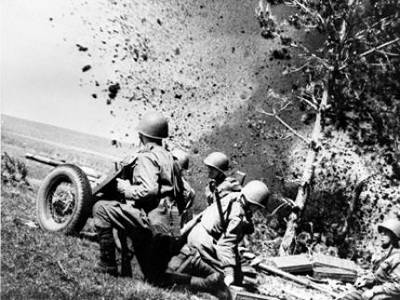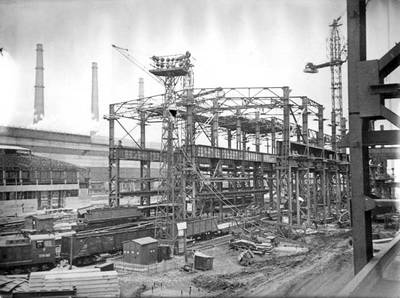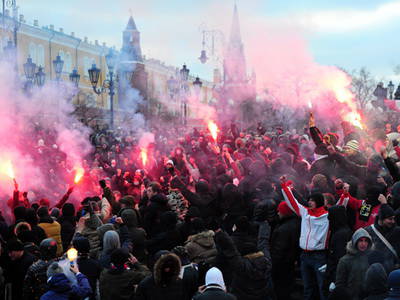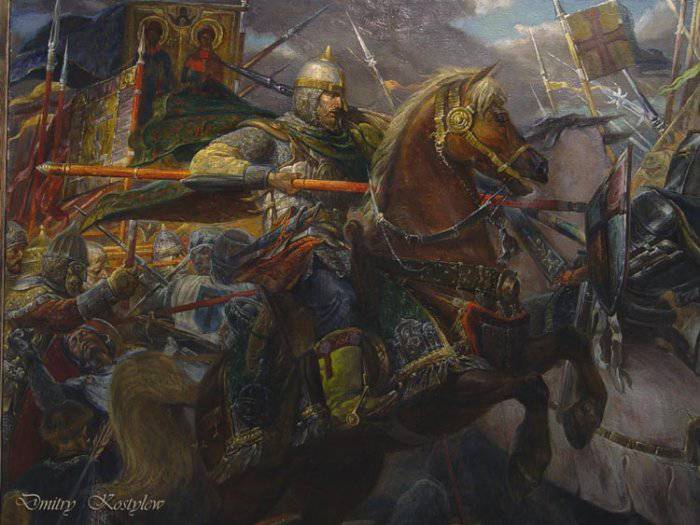What did our grandfathers and great-grandfathers fight for?
In an effort to postpone the start of the war as far as possible, the Soviet leadership made unprecedented concessions to the German side, not noticing provocations, concentration of troops, countless violations of airspace and much more. As a result, the underestimation of the danger placed the Soviet Union on the brink of an abyss, and the Soviet army and people turned out to be participants in an unprecedented scale disaster. In total, in areas occupied by the Germans, about 7,4 million civilians were destroyed, cities were destroyed, villages were burned, the working-age population was hijacked to work in Germany.
The Red Army was able to stop the enemy and protect the country, but the victory came at a high price. On average, from June 22 to 4 December 1941, the army lost 21 132 people killed on an average day; if you take the whole war, the average daily irretrievable losses were 11 398 soldiers and officers of the Red Army. In total, for all 1418 days of the Great Patriotic War, the USSR armed forces lost 8 668 400 people killed. The hardest and irreplaceable blow was dealt to the youngest, most able-bodied part of the population. The number of deaths among citizens of 20 years and younger was 1560,3 thousand (18%), 21-25 years - 1907,0 thousand (22%), 26-30 years - 1517,0 thousand (17,5%), 31-35 years - 1430,3 thousand . (16,5%), total 6 414,6 thousand people or 74% of the irretrievable losses of the Red Army. According to statistics, only 3% of 1922-23-24 front-line soldiers are still alive.
 Future scientists, engineers, poets died on the battlefields, the future of the country perished. In 1942, near Moscow, Yury Kondratyuk was fatally wounded. This scientist in 1920-ies comprehensively substantiated the theory of space flight. It was along the “Kondratyuk highway” that the Americans subsequently sent their Apollos to the moon.
Future scientists, engineers, poets died on the battlefields, the future of the country perished. In 1942, near Moscow, Yury Kondratyuk was fatally wounded. This scientist in 1920-ies comprehensively substantiated the theory of space flight. It was along the “Kondratyuk highway” that the Americans subsequently sent their Apollos to the moon.On the fronts of that war, all the peoples of the USSR fought, but it was the Russians who suffered the greatest losses - 5 756 000 people or 66,4% of the total number of soldiers killed.
After the war, Basil Liddel Hart, an English military historian, summarized the memories of the German generals about the Red Army. The most instructive of them are the impressions of a simple Russian soldier. Field Marshal-General Ewald Kleist noted: “From the very beginning, the Russians were first-class fighters; we owed our success to our great experience. They had tremendous stamina and fought fiercely. Their commanders were able to learn the lessons of their first defeats and quickly began to act more effectively. ” Another general, Blumentrit, holding the post of deputy chief of staff of the ground forces, noted in his diary: “The very first battles of 1941 of the year showed us a new Soviet army, it was much stronger than the tsarist, it fanatically fought for the idea. History proved to us that if Russians participate in hostilities, the struggle becomes extremely tense and ruthless, it is almost impossible to defeat them, even if rivers of blood are spilled. ”
Work on uncle
After the war, the Russian people woke up with the hope that now the standard of living in the country would rise. But the USSR immediately began to provide economic assistance to Czechoslovakia, Poland and other European countries, including the former allies of Germany. Bulgaria alone in 1945 was donated 7186 tons of wheat, 1302 tons of meat, fuel. People in the USSR were starving, but at that time, the former occupiers, who suddenly became anti-fascists, received Soviet help. The Stalinist government unreasonably humanely reacted to the former Hitler's allies: Bulgaria, Hungary, Romania, the Czech Republic, Finland. Along with this, the fraternal union republics continued to receive all-round assistance. The report by Brezhnev on December 21 1972 of the Year “On the 50 Anniversary of the USSR” especially emphasized that all-round assistance to nations and nationalities within the USSR was provided, above all, by the Russian people.
Naturally, nobody ever asked the Russian people about it. In the republics of Central Asia and the Transcaucasus, throughout the history of the USSR, factories and plants were built at the expense of the Russian part of the population, agriculture, health care, and education developed. During the years of Soviet power, the volume of industrial production in Kazakhstan grew by 600 times, in Tajikistan more than 500, and in Kyrgyzstan by 400 times. Revolutionary Russia — devastated and starving — already sent millions of money and thousands of workers to Turkestan in 1918 to raise industry.
 After the collapse of the Soviet Union, the Russian population of the Union republics found itself in the most difficult conditions and for the most part was forced to move to Russia, but they were not expected here. For the people who came to their homeland, Russia became a stepmother. But many of them left for the republics of the USSR not at the call of the heart, but in the direction of the state, as noted in the Brezhnev report, this assistance to the national outskirts of the country was called a glorious feat of the Russian people.
After the collapse of the Soviet Union, the Russian population of the Union republics found itself in the most difficult conditions and for the most part was forced to move to Russia, but they were not expected here. For the people who came to their homeland, Russia became a stepmother. But many of them left for the republics of the USSR not at the call of the heart, but in the direction of the state, as noted in the Brezhnev report, this assistance to the national outskirts of the country was called a glorious feat of the Russian people. Nowadays, the Russian people are again calling for a feat, this time to raise the North Caucasus. 6 in December last year, the presidential plenipotentiary in this federal district said that the total investment in regional programs would be 600 billion rubles. Grants per capita in the republics of the North Caucasus in 2011 will be about 10-15 thousand rubles per person, while for the regions with the Russian population (Belgorod, Orenburg, Sverdlovsk regions) this indicator is at the level of 960-1300 rubles.
If you call a spade a spade, the Russian people work for some uncle from the Caucasus. If you and I believe that it is necessary to achieve everything with our work, then why in this country alone live at the expense of the labor of others. This is a harmful and wrong signal that only helps to strengthen dependency.
At the edge of the abyss
Today we live in a federation - a union of equal republics in which all nations and nationalities of the country should be equally represented, but there is no Russian republic within the Russian Federation. You can, of course, say that the Russian Federation itself is Russia, but this is not so. The Russian Federation today is, in essence, a truncated copy of the USSR, with all its legal rights and obligations both within the state and in the world. In place of the former republics of the USSR came the national republics. For many it is obvious that within the Russian Federation today a Russian Republic should be created with a historical center in the originally Russian city - Moscow. As part of the Soviet Union, such a republic was the RSFSR.
For centuries, the Russian people relied only on power, on its support and protection. Russians have their own traditions, their own way of life, their own customs, which are based on Christian norms of life, as in most European countries. Russians have no tapes, age-old clan ties, clans, no blood feud or other distinctive features of the mountain peoples. The Russians always united around the authorities, defended it, respected the existing laws.
The protection of the Russian population is one of the main questions of the future of our state. The Russian people created this country, protecting it from mortal danger for centuries. Therefore, the protection of the Russian population and its way of life should become a priority of the government, because no nationality or ethnicity can save Russia, except for the Russians themselves.
 Now inter-ethnic relations are aggravated in the country, and the further the government continues to close its eyes to this problem, the deeper it will develop. Today, one thing is clear - without the revival of Russian spirituality, Russian self-awareness, improvement of the well-being of the Russian people and its leadership among all other nationalities as a state-forming problem in Russia, including inter-ethnic, will only deepen.
Now inter-ethnic relations are aggravated in the country, and the further the government continues to close its eyes to this problem, the deeper it will develop. Today, one thing is clear - without the revival of Russian spirituality, Russian self-awareness, improvement of the well-being of the Russian people and its leadership among all other nationalities as a state-forming problem in Russia, including inter-ethnic, will only deepen.Recent years have shown that endless cash injections into the economies of the Caucasian republics do not reduce the terrorist activity and criminality of ethnic groups in this region. Money alone does not solve everything. It is clear that in these republics there is a high level of unemployment, and social disorder, but these problems currently exist in other regions of the country.
Today, immigrants from the Caucasus and migrants do not comply with laws and orders, they behave aggressively and do not respect the standards of life that have been taking shape for centuries in Russian regions. Crime among migrants 5 times the crime rate among the local population. Law enforcement agencies do not apply proper measures to ethnic crime, so she feels more and more confident.
In any crime involving immigrants or their violation of the law, they most often try to blame the Russians, because they are easier to punish, blame, the Russians will not be able to pay off, there is no one to stand up for them. A Russian can always be accused of inciting ethnic hatred, although for the most part all these violations of the law are connected with ordinary hooliganism and criminality. They arise because of double standards and connivance on the part of the authorities. The arising inter-ethnic problems can be resolved only under conditions of the strictest observance of the law, without any differences based on nationality. Today, the government has everything necessary for this, lacking only will.
In 1941, when the country was on the verge of a catastrophe, the military-political leadership found support, first of all, in the Russian people and its national heroes: Alexander Nevsky, Dmitry Donskoy, Alexander Suvorov, Mikhail Kutuzov. In the face of mortal danger, they did not raise Marx with Engels, but folk heroes, the patriotism of the Russian people and their devotion to the Fatherland. Has the time come when the authorities need to rely on the Russian people, their heroic history and great ancestors, protect the Russians, support them, raise the level of material well-being and help spiritually?

Information